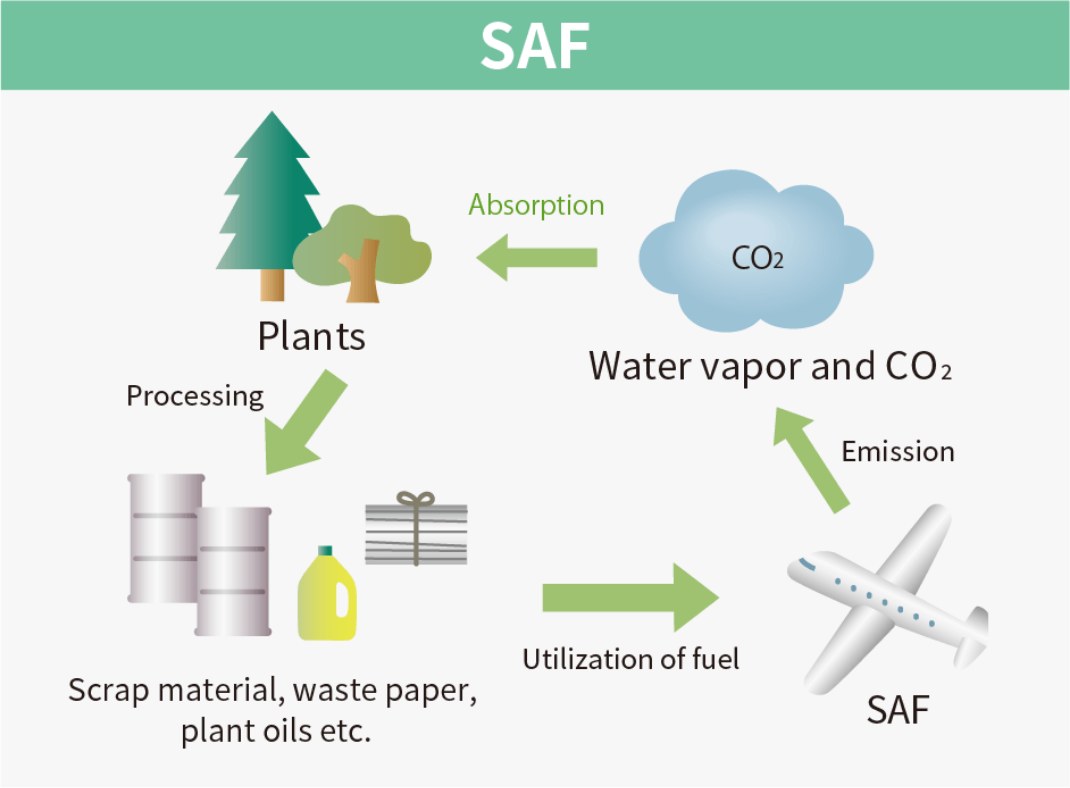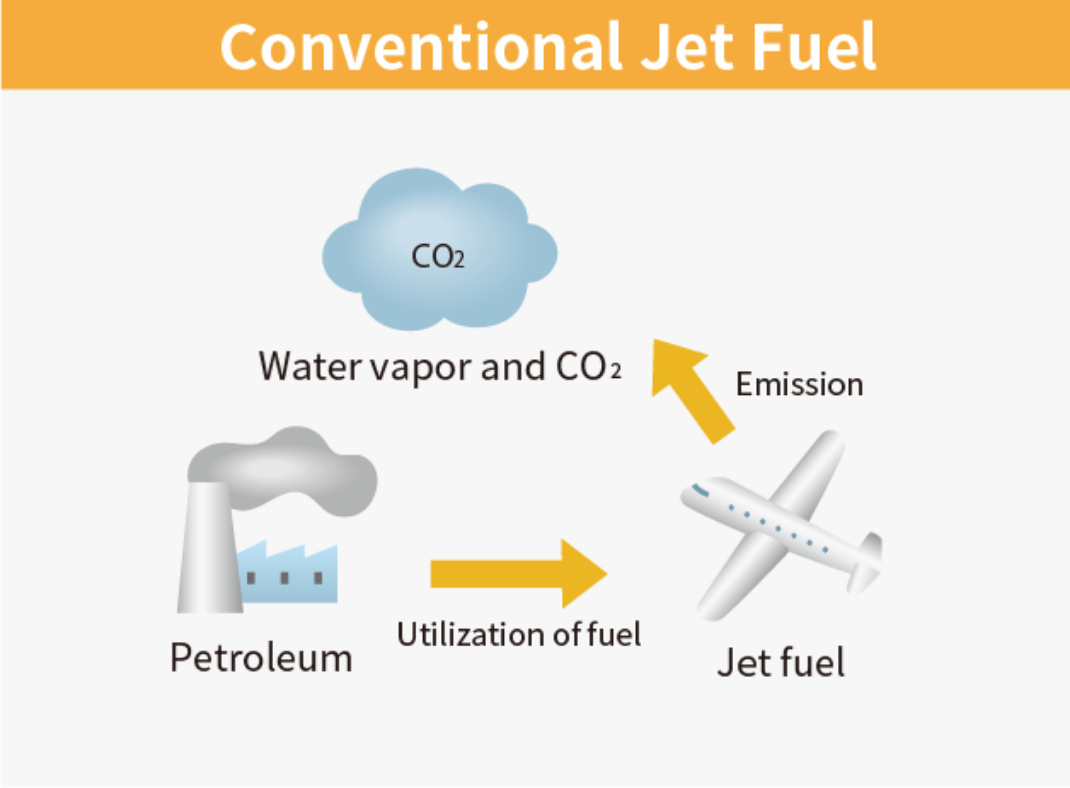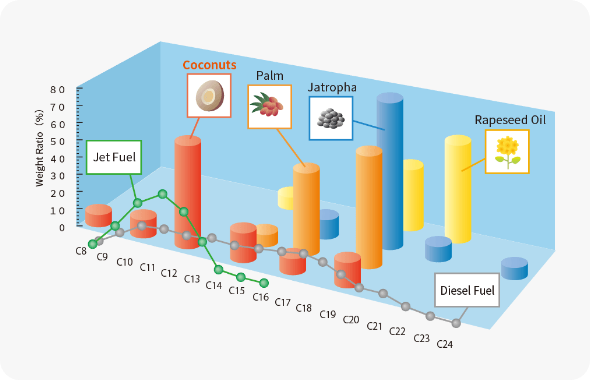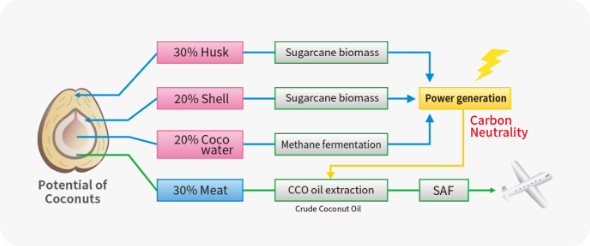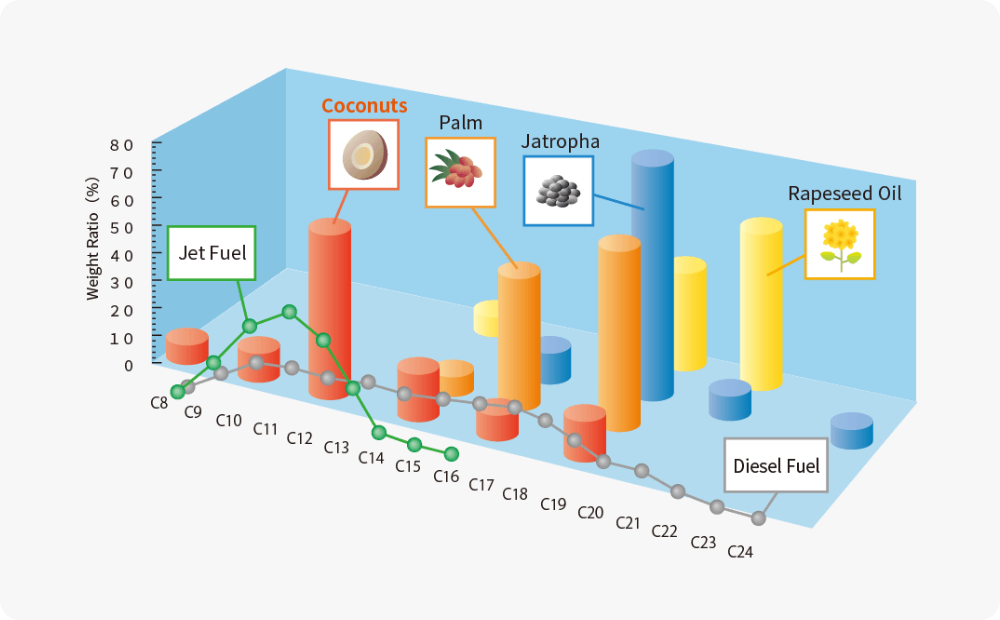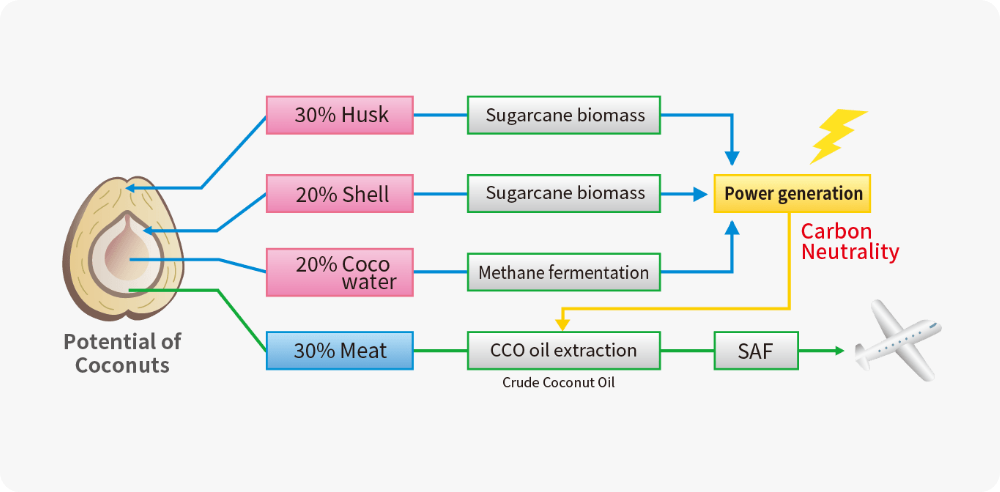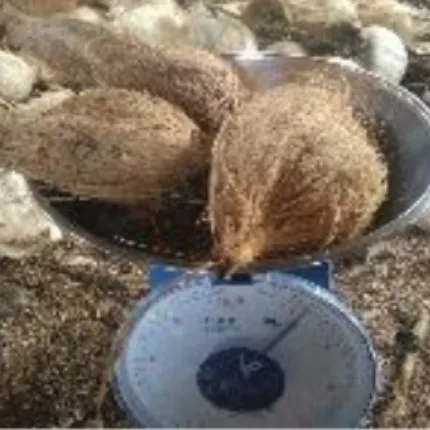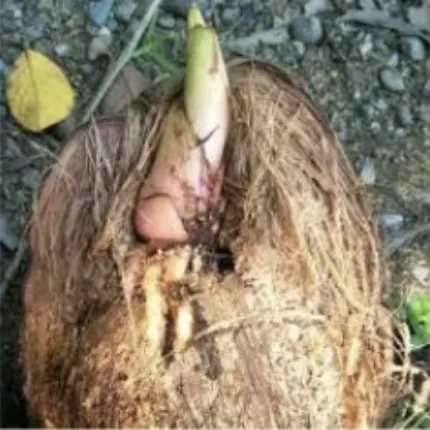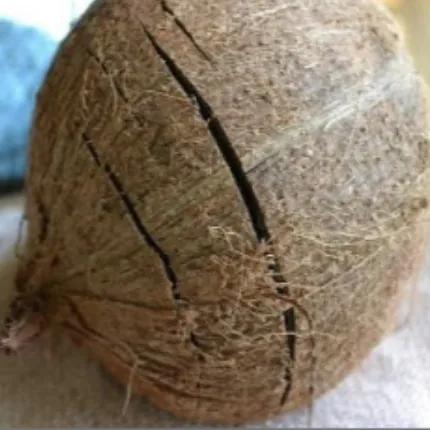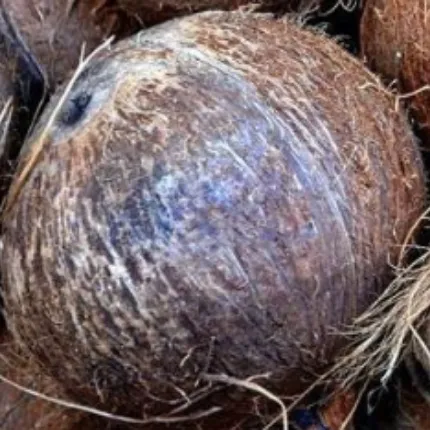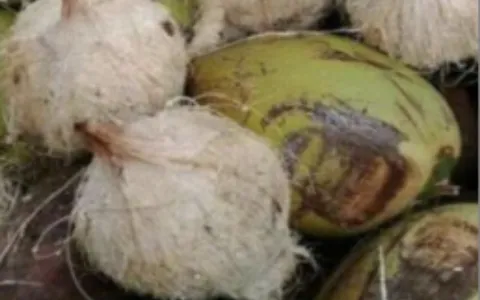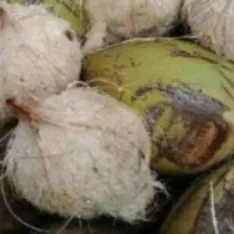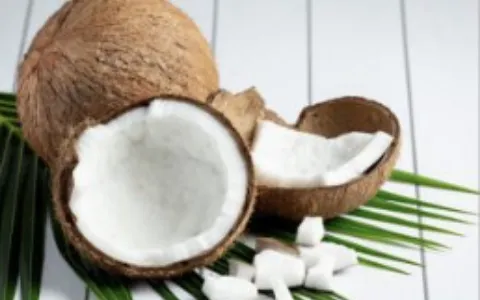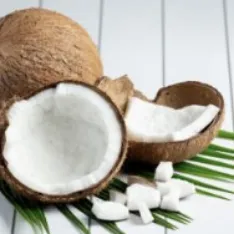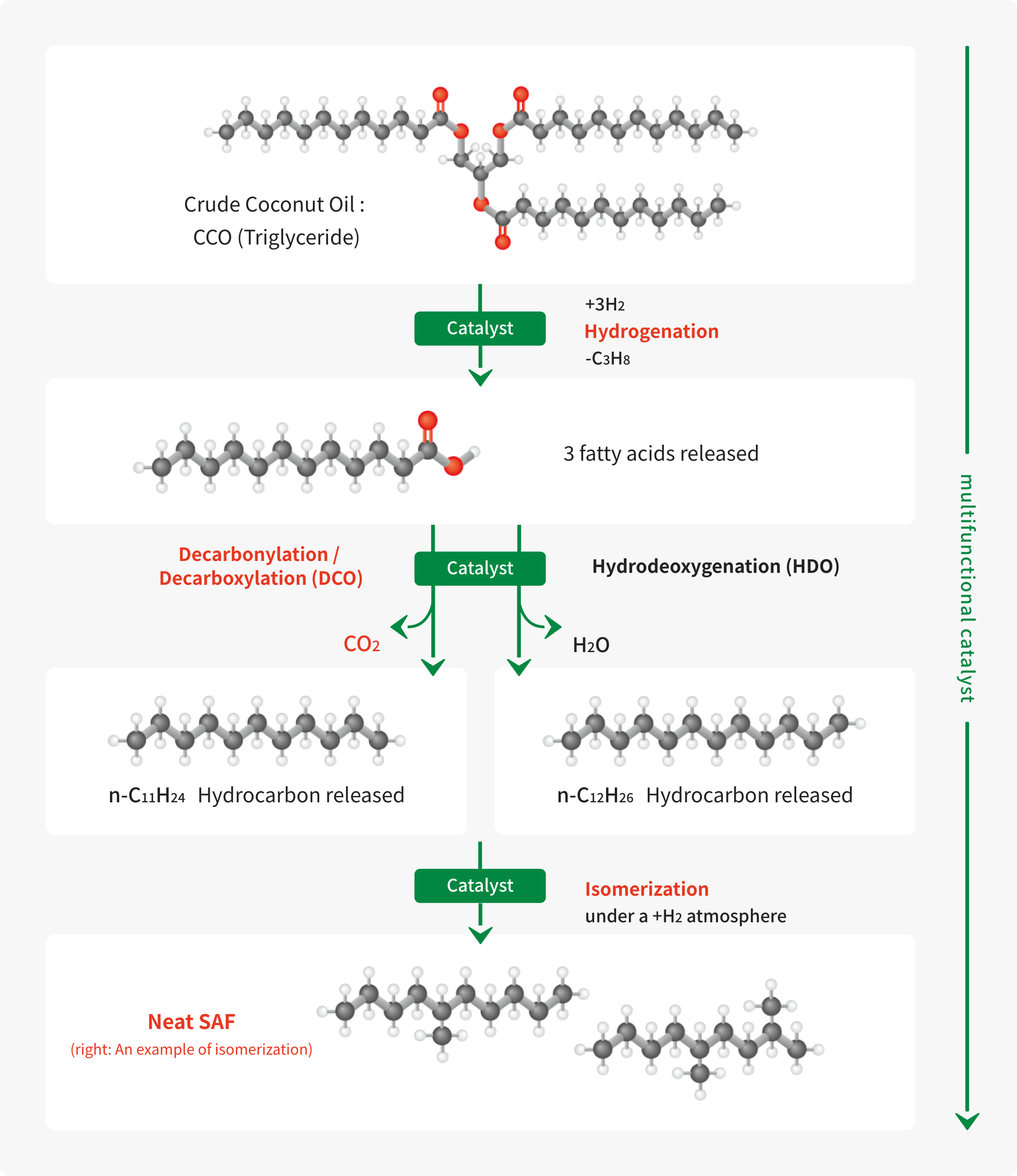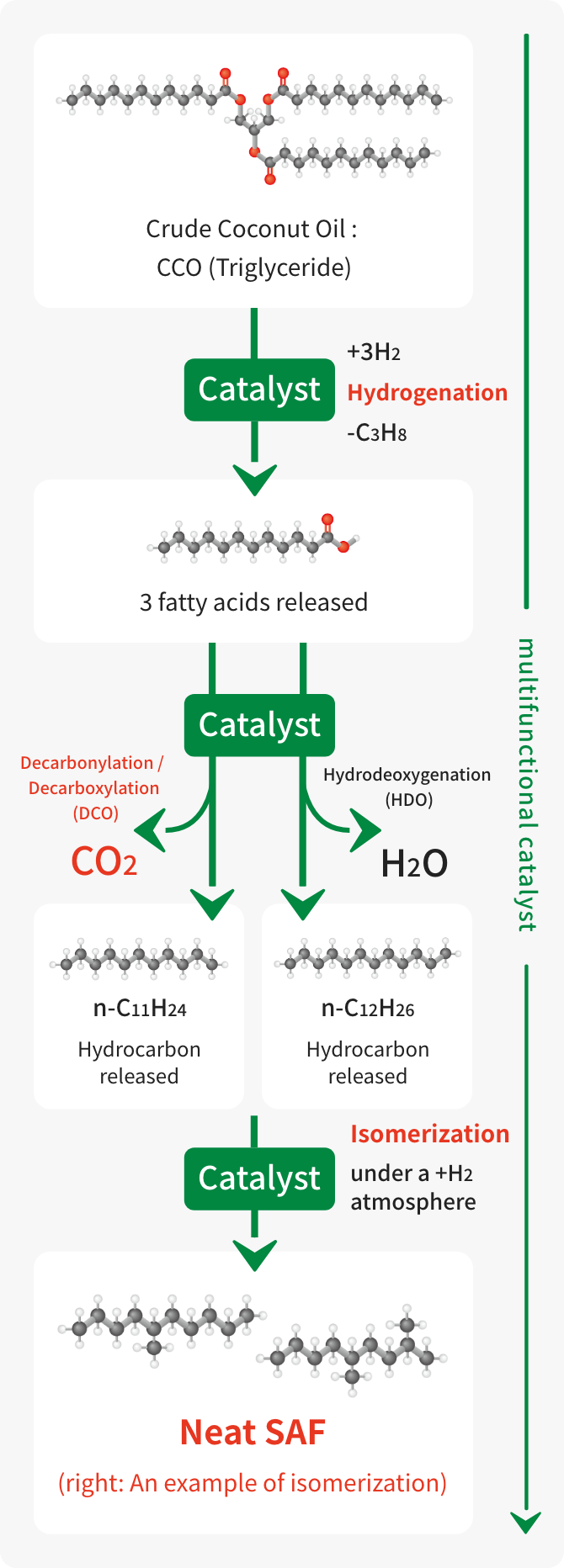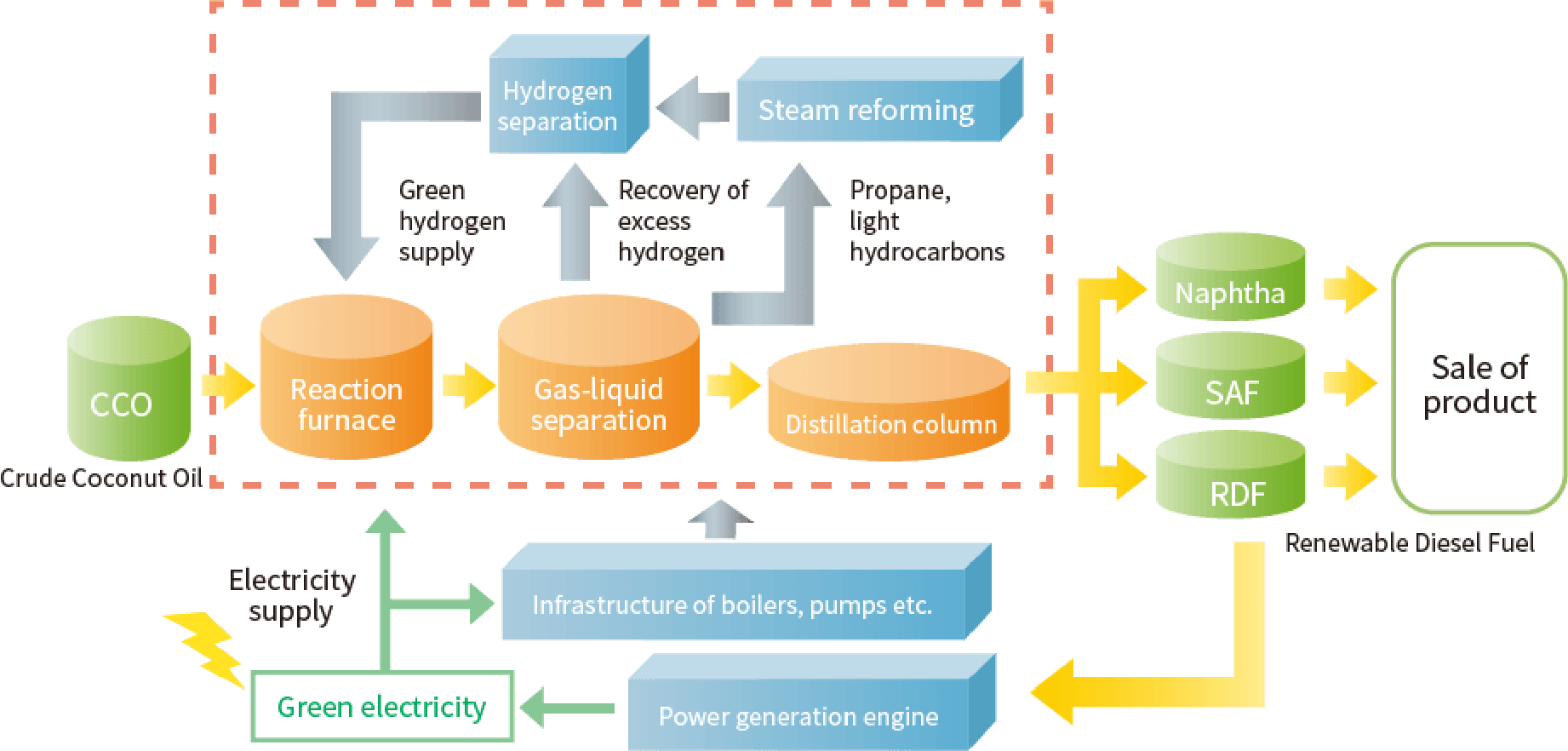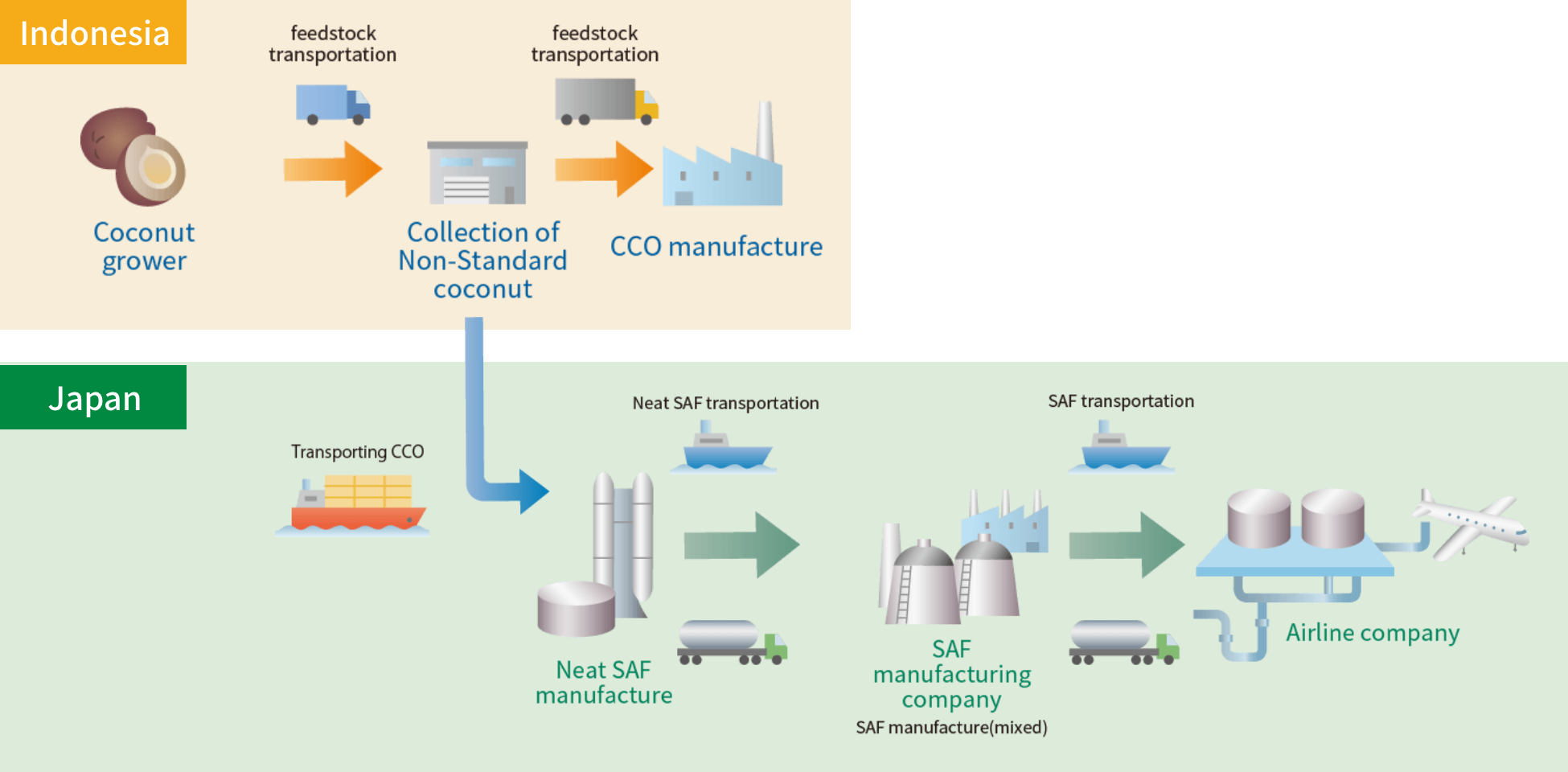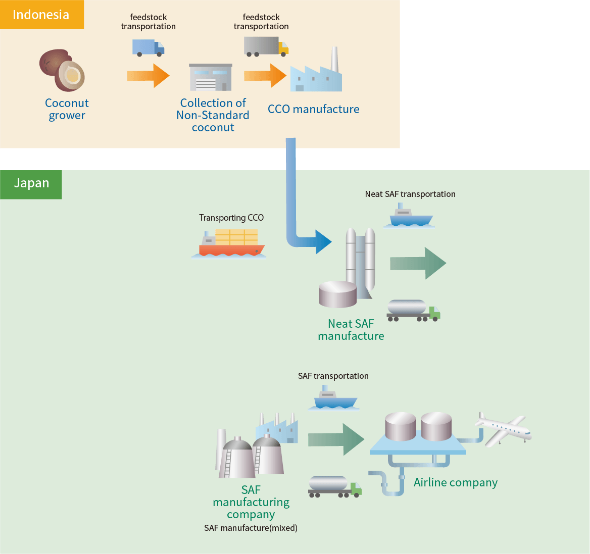What Makes Us Different
01The World’s First Commercialization of
SAF from Non-Standard coconut
In response to the urgent need for decarbonizing aviation fuels, our company has been at the forefront of research and development for the commercialization of SAF derived from Non-Standard coconut, setting a global precedent.
The Potential of Coconuts as SAF Feedstock
Carbon Number Similar to Jet Fuel Hydrocarbons:
Compared to other biomass fuels like palm oil, jatropha, and rapeseed, Crude Coconut Oil (CCO) contains fatty acids with a carbon number similar to those found in jet fuel hydrocarbons. This structural similarity allows for more efficient processing, reducing the need for additional hydrogen during the hydrocarbon breakdown.
Utilization of All Coconut Parts for Energy and Fuel:
The entire coconut, including the shell, husk, water, and meat, can be repurposed for energy and fuel production. This comprehensive use significantly contributes to GHG reduction and the achievement of carbon neutrality.
02Establishing Non-Standard coconut as a Global SAF Feedstock
The development of SAF from Non-Standard coconut began with the creation of an official definition for those coconuts. With strong support from the Indonesian government, this project has progressed, and in March 2024, Non-Standard coconut were officially added to the ICAO CORSIA Positive List as an approved SAF raw material.
- 01
-
Defining Non-Standard coconut
We spearheaded the development of an international standard for coconut eligible for use as SAF feedstock, with backing from the Indonesian government and intergovernmental organizations under the United Nations.
- 02
-
March 2024: Non-Standard coconut Officially
Registered as SAF Feedstock
Non-Standard coconut were formally included in the ICAO CORSIA Positive List as SAF feedstock.
- 03
-
Building a Sustainable Raw Material Supply Chain for CORSIA Certification
We are promoting Crude Coconut Oil (CCO) production facilities in the countries where feedstcoks are sourced. Additionally, we are establishing a traceability system to track the handling from production sites to CCO plants.
※ICAO:International Civil Aviation Organization
※CORSIA:Carbon Offsetting and Reduction Scheme for International Aviation
A definition of a Non-Standard coconut
03 Advancing Catalyst Development by Utilizing the Superiority of Coconut as a SAF Feedstock
We are harnessing the specific advantages of Crude Coconut Oil (CCO), which has a carbon number structure similar to jet fuel, to facilitate catalytic reactions under low hydrogen pressure. By developing a multifunctional catalyst capable of simultaneously driving hydrogenation, decarboxylation, and isomerization reactions, we aim to efficiently convert CCO into neat SAF. This approach suppresses cracking reactions, creating an eco-friendly, low-hydrogen-consumption catalytic process.
Development of a Multifunctional Catalyst for Concurrent
Reactions and Enhanced Decarboxylation
We are advancing the design of a multifunctional catalyst capable of facilitating multiple reactions concurrently, with a particular focus on promoting decarboxylation. This innovation represents a significant step toward the realization of a sustainable, low-hydrogen consumption process with reduced environmental impact.
SAF Plant Concept with Integrated Green Energy Circulation
04Successful Production of Neat SAF in Accordance with ASTM Standards
ASTM standards, comparable to Japan’s JIS standards, are industrial specifications developed by ASTM International, the world’s leading standardization organization. Since 2019, we have been conducting joint research with Tokyo University of Agriculture and Technology to develop innovative catalysts for the production of SAF from Non-Standard coconut. In June 2024, we successfully achieved the production of SAF conforming to ASTM standards.
June 2024: Successful production of SAF in accordance with Annex 2 of ASTM D7566






